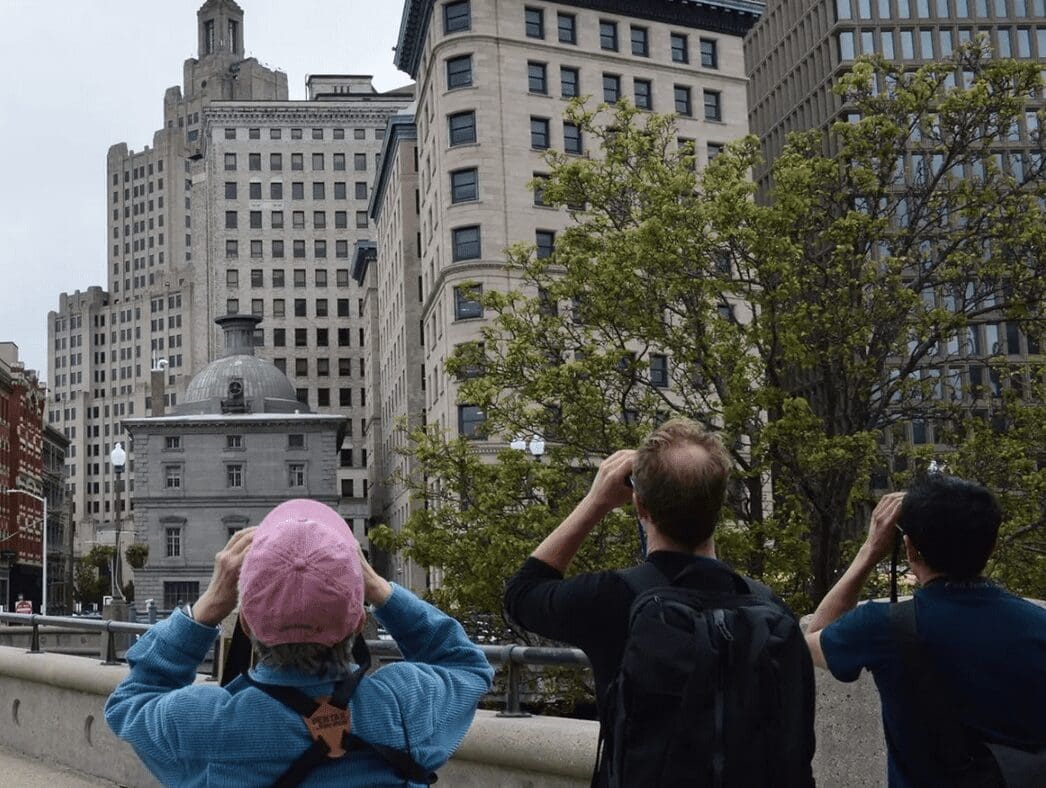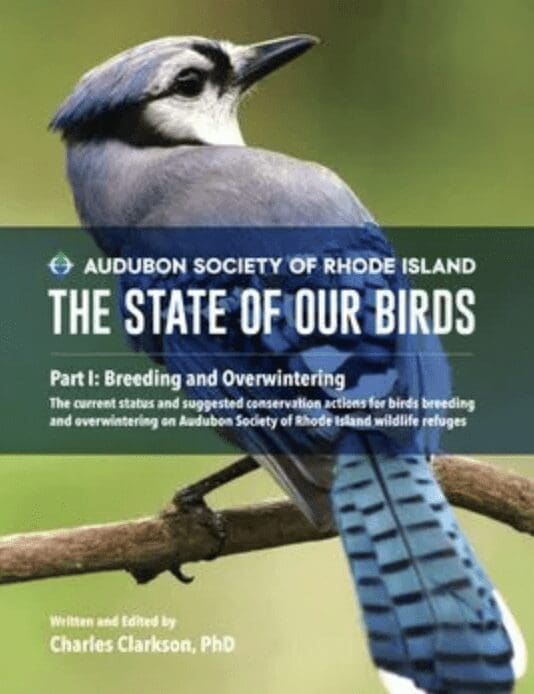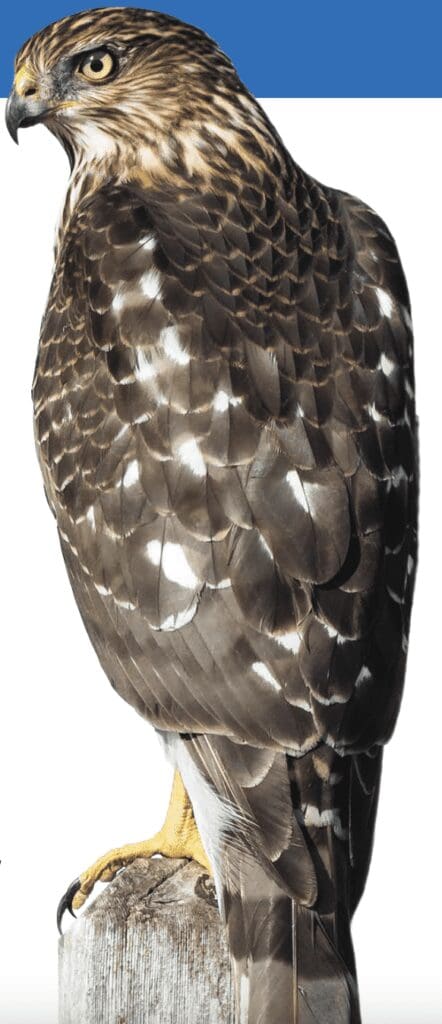Search Posts
Recent Posts
- Christopher Buonanno running for Cranston City Council, city-wide April 27, 2024
- Rhode Island Weather for April 27, 2024 – John Donnelly April 27, 2024
- Eat, Play, Learn: Summer opportunities fair for Providence – TODAY April 27, 2024
- Caitlyn Clark and breaking the glass ceiling for women in all sports – John Cardullo April 27, 2024
- In the news… your quick look at the week ending April 27th April 27, 2024
Categories
Subscribe!
Thanks for subscribing! Please check your email for further instructions.

Outdoors in RI: The State of our Birds report
Photo: Providence Parks Urban Wildlife Refuge Partnership
The State of Our Birds Report was released by the Audubon Society of Rhode Island. And the news is not good. Nearly every group of birds is declining.
Across North America, birds are declining. As indicators of environmental health, the loss of roughly 3 billion birds since 1970 portends changes to our habitats, water, air, and soil that deserve our attention and concern. The health of our bird populations is inextricably linked to our own.

As a leading conservation organization in Rhode Island, Audubon has dedicated itself to providing and managing habitat for birds in a capacity that would promote their survival in the face of climate change. To meet this goal, the organization developed the Audubon Avian Research Initiative in September 2021 to document the bird populations utilizing the nearly 9,500 acres of land managed by the Society.
- A fifth of all birds on the Earth pollinate our wildflowers and fruiting trees. They serve as natural control agents for agricultural and household pests. Birds disperse seeds, contributing to habitat health and they scavenge dead and decaying organic matter. “We need birds more than they need us,” said Dr. Charles Clarkson, Audubon Director of Avian Research. “And we are slowly losing them from the fabric of our existence. Because of human population growth, the loss of natural habitat, the climate crisis and more, birds are becoming increasingly scarce.”
- On January 28, 2023, Clarkson unveiled the first Audubon State of Our Birds Report during a sold-out “Birds Across New England: The Audubon Regional Conservation Symposium” at the Audubon Nature Center and Aquarium in Bristol, RI. Over 70 attendees joined 22 scientists from across New England as research was presented and region-wide comprehensive conservation plans were developed.
- Armed with the knowledge from the new Report, Audubon will begin a monitoring and management scheme to reverse the declining trends in our birds. Some of the findings from the report include:

- Greater than 1/3 of all birds found breeding on Audubon Society of Rhode Island wildlife refuges are experiencing long-term population decline. Only 1/4 of all species are showing signs of long-term increases in population.
- The greatest declines were seen in aerial insectivores, such as Barn Swallows, Bank Swallows, and Chimney Swifts and species associated with early successional and grassland habitats. These steep declines are likely due to habitat loss, decline in prey abundance (insects) and climate change.
- A total of nine species were selected as “Responsibility Birds.” These bird species will receive additional monitoring from Audubon to determine the steps that can be taken to mitigate current population declines and promote local and regional population growth.
There still is hope. “Conservation is a lengthy process,” explained Clarkson. “Stopping the decline is not going to happen overnight. But we need to get the message out now. It’s important to engage the public, not just the conservation community. The hope is that the more people that become aware of the loss of our birds, the more we can act together. Our collective actions and choices can make a real difference.”
When we help birds survive, we help each other. Learn more about the Audubon Society of Rhode Island Avian Research Initiative, at asri.org/AvianResearchInitiative
To download part 1 – click HERE – part 2 will be published in May of 2023.
___
If you’ve never been “into birding” or this article inspires you to learn more…
Providence Birding Adventures
Next Adventure: Sunday, February 12, 2023 from 9:30-10:30 am.
Join naturalists from the Audubon Society of Rhode Island and the Providence Parks Urban Wildlife Refuge Partnership for a FREE guided bird walk in Providence on Sunday, February 12, 2023 at 9:30-10:30am.
We are meeting at the Save the Bay Center, to access their public dock behind the building. This is a good time to look for our winter waterfowl like ducks and geese and loons at top of the Narragansett Bay! We will gather just to the left of the main building’s entrance, to follow the path around to the back of the building.
The path to the back and along the water is paved, and relatively flat. The public dock is also flat. We typically stay near the water, so the majority of this walk will be accessible.
We encourage you to walk, bicycle, carpool or take public transit if you are able to. The RIPTA bus Route #3/4 stops along Narragansett Boulevard, near Harborside Boulevard. If you walk down Harborside Boulevard, past the Johnson and Wales buildings and turn right on Save the Bay Drive, you will find the Save the Bay buildings.
If driving, you can park anywhere in the Save the Bay parking lot. Use Save the Bay Center as the address: 100 Save the Bay Drive, Providence.
We acknowledge that these lands we will explore are the traditional, ancestral and contemporary lands of the Narragansett, Nahaganset, Wôpanâak, and Pokanoket nations. We are grateful to these local indigenous nations for being the first to steward these lands and waters, and for continuing that stewardship in the present and into the future.
These birding adventures began in 2018 as part of the Urban Bird Treaty Program, and in 2019, Providence was designated a Bird Treaty City. To read more about the Urban Bird Treaty and other participating cities, visit the website and check out the story map.
• • •
Thanks to the U.S. Fish and Wildlife’s Urban Bird Treaty Program, and a partnership between the Providence Parks Urban Wildlife Refuge Partnership and the Audubon Society of Rhode Island, these free, bird walks will be held at various urban parks.
